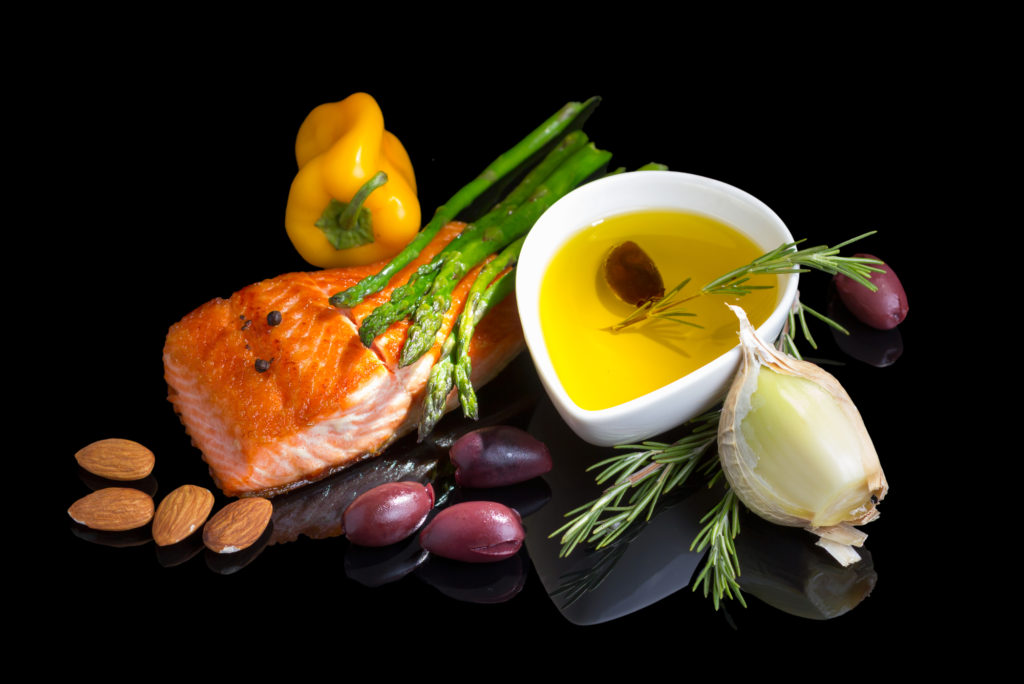
In a world full of overweight unhealthy people, fad diets come and go as quickly as any other trend. The Mediterranean diet is one of the diets that gets thrown around quite often in the health and wellness world, more so than most other diets, for good reason.
The Mediterranean diet is a little different than the others. It doesn’t just focus on a healthy weight, but also on improving one’s overall health, specifically heart health. It is considered one of the healthiest ways of eating, is easy to follow, and is pretty flexible as well.
Audio/podcast version:
Mediterranean Diet Health Benefits
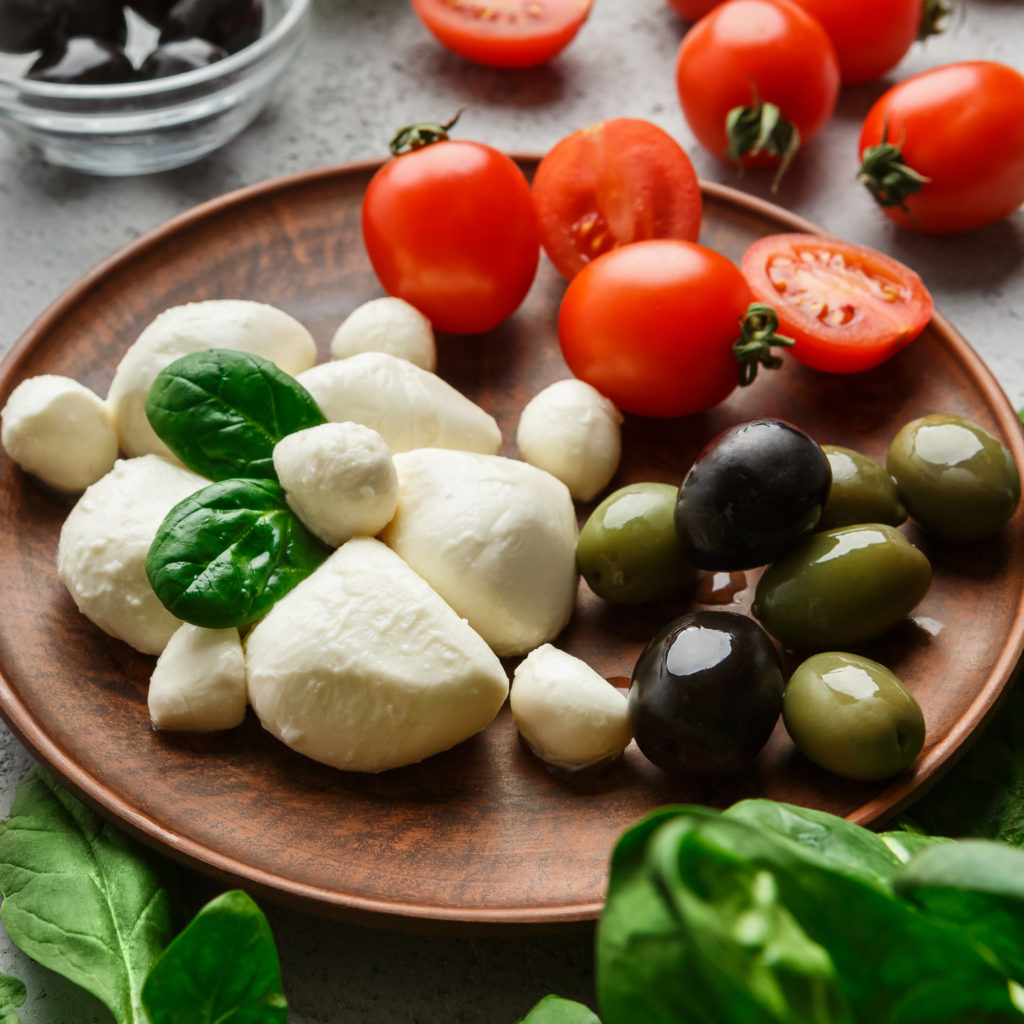
Here are some of the different benefits for your health, aside from the fact that it is a simple diet to follow without a lot of restrictions.
It is a heart healthy diet. If you are concerned about your cardiovascular health, have heart problems or high blood pressure, this is definitely the diet for you.
It is simple to follow. Overall, this diet is simple to follow. You focus on vegetables and fruits, nuts and seeds, healthy fats and oils, poultry and fish, and that makes up most of your diet. Many of the foods you already love are probably included.
You get the most important nutrients. If you have ever been on a diet, you know that one of the drawbacks is dealing with vitamin deficiency. Maybe you did low-carb and didn’t get enough electrolytes, or you were a vegetarian and your protein was always too low. If you struggle balancing nutrients, it is much easier to do with the Mediterranean diet.
Here’s what Harvard Medical School had to say about the Mediterranean Diet in their Diet Review from 2020:
“Many research studies- both observational and clinical- support the health benefits of the Mediterranean Diet. It’s easy to find recipes for Mediterranean-style recipes. Because the Mediterranean region includes several countries with unique culinary histories, there is a lot of diversity in how to use- and flavor- the staple foods.”
The only downside they said regarding this diet is that the staple foods might be harder to find and/or require more trips to the grocery store. A fair trade off for better health, in my opinion!
Mediterranean Diet Food List
The Mediterranean diet is straightforward and doesn’t focus as much on taking foods away but adding some healthy options to your meals. Here is a food list to help you know the guidelines.
Eat Mostly:
- Cold-pressed extra virgin olive oil (Avoid high heat; mainly use cold)
- Vinegar
- Legumes (lentils, peas, beans, chickpeas; this includes hummus which is made from chickpeas)
- Nuts and Seeds
- Leafy Greens
- Vegetables
- Herbs and Spices
- Rice (Jasmine, Basmati, or brown rice is best)
- Pasta (Made from lentils, vegetables or whole grain is best)
- Chicken
- Seafood
- Fruit
Eat in Moderation:
- Beef (grass-fed is better)
- Whole Grains
- Some dairy (organic eggs, Greek yogurt)
- Some cheeses (Parmesan, mozzarella, ricotta, feta)
It should go without saying that, like any good diet, try to include none or very little of the usual bad guys like sugar, fast food, processed foods, pastries, candy bars, etc.
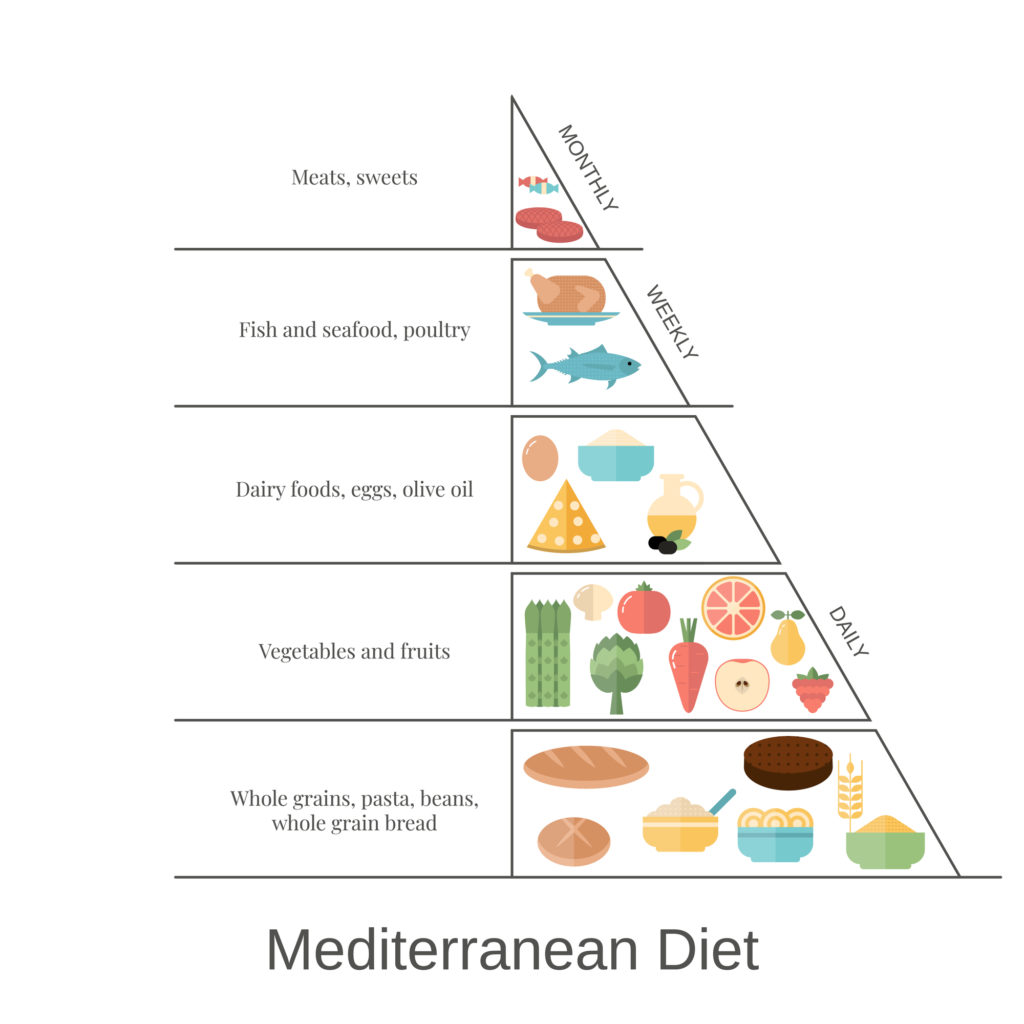
It’s very easy with this diet to mix and match whatever you like. To make a simple meal, start with a base of rice, whole grains, pasta, lentils, or leafy greens. Add vegetables, chicken, seafood, or beef. Sprinkle on cheese, nuts, seeds, dried fruit, or more vegetables.
This can make a salad, a hot meal such as a casserole (hotdish if you’re from my part of the country!), or a Buddha bowl-type meal. Be sure to use herbs and spices as well as vinegar, honey, or citrus peels for flavor rather than processed dressings, fat, sugar, or too much salt.
Resources For Mediterranean Diet Information and Recipes:
If you want to dive deeper into learning about this diet, the two websites listed below offer a lot of information for beginners to start the Mediterranean Diet, including recipes:
If you found this article helpful, share it with others on Pinterest!
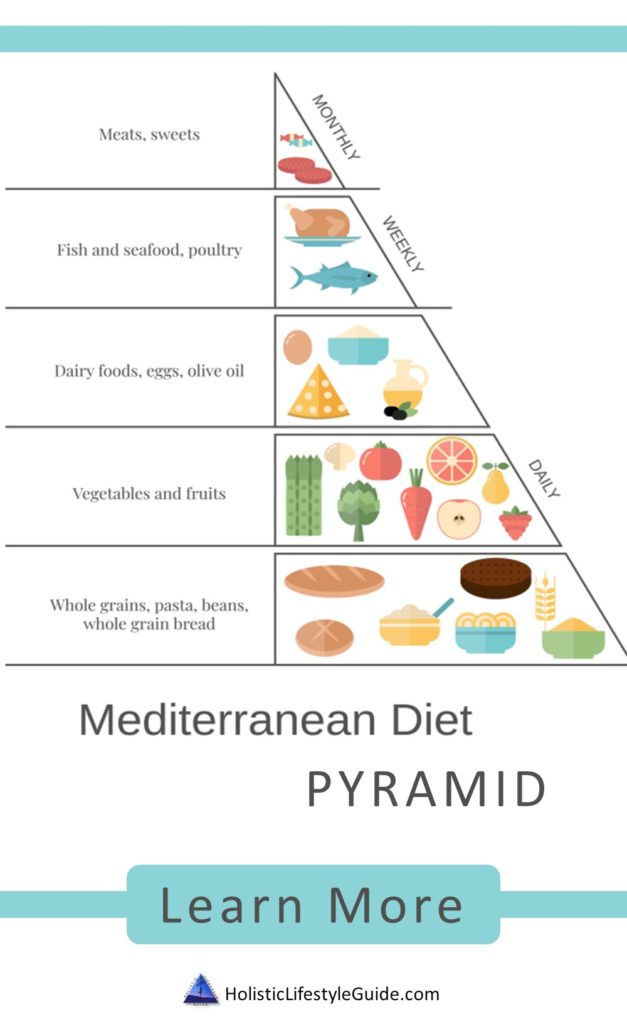
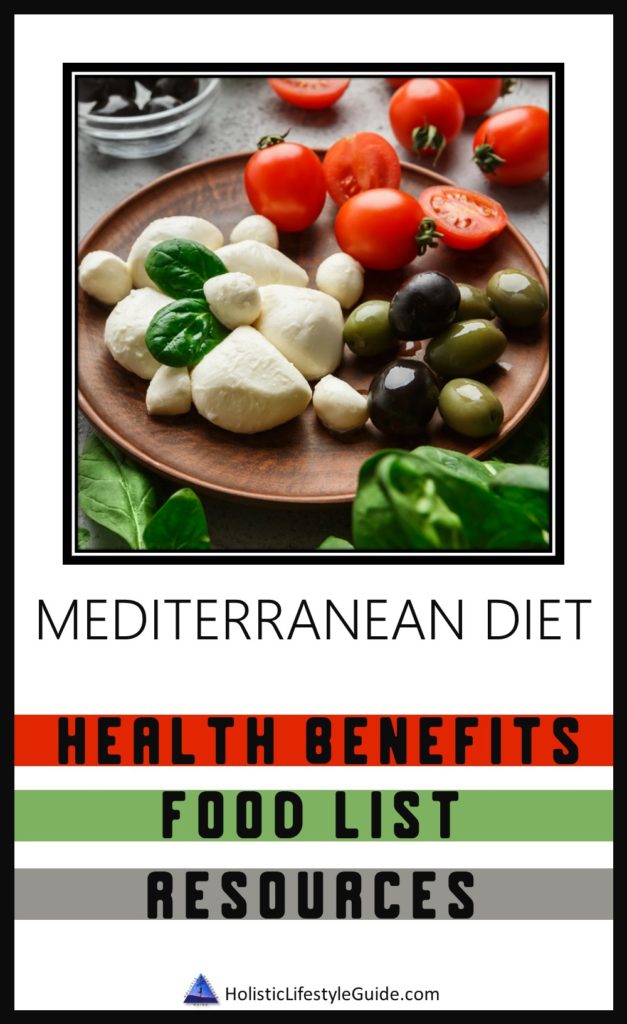
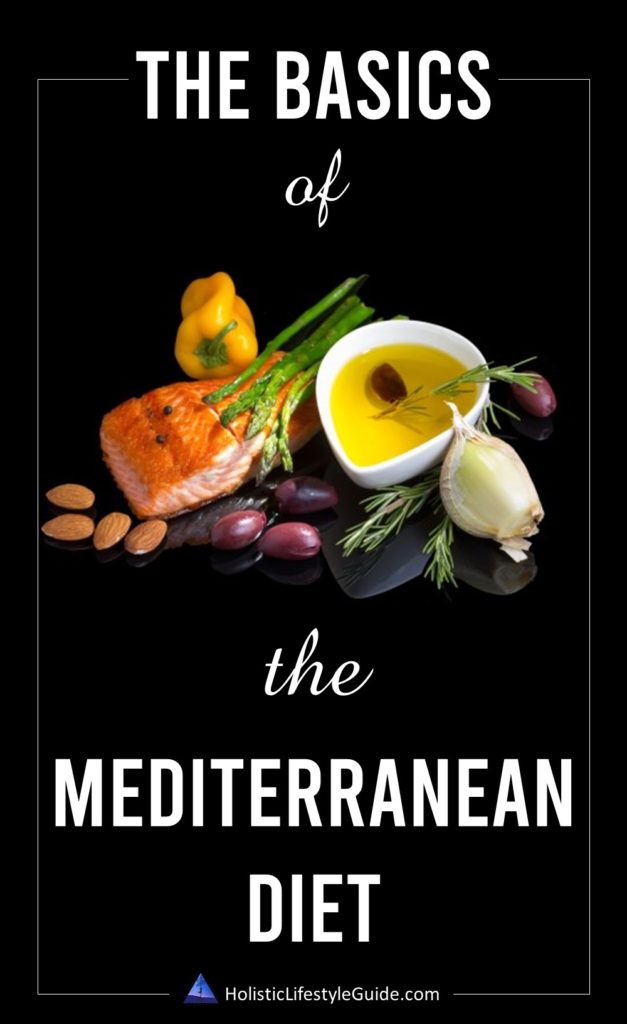
1 Comment
Comments are closed.